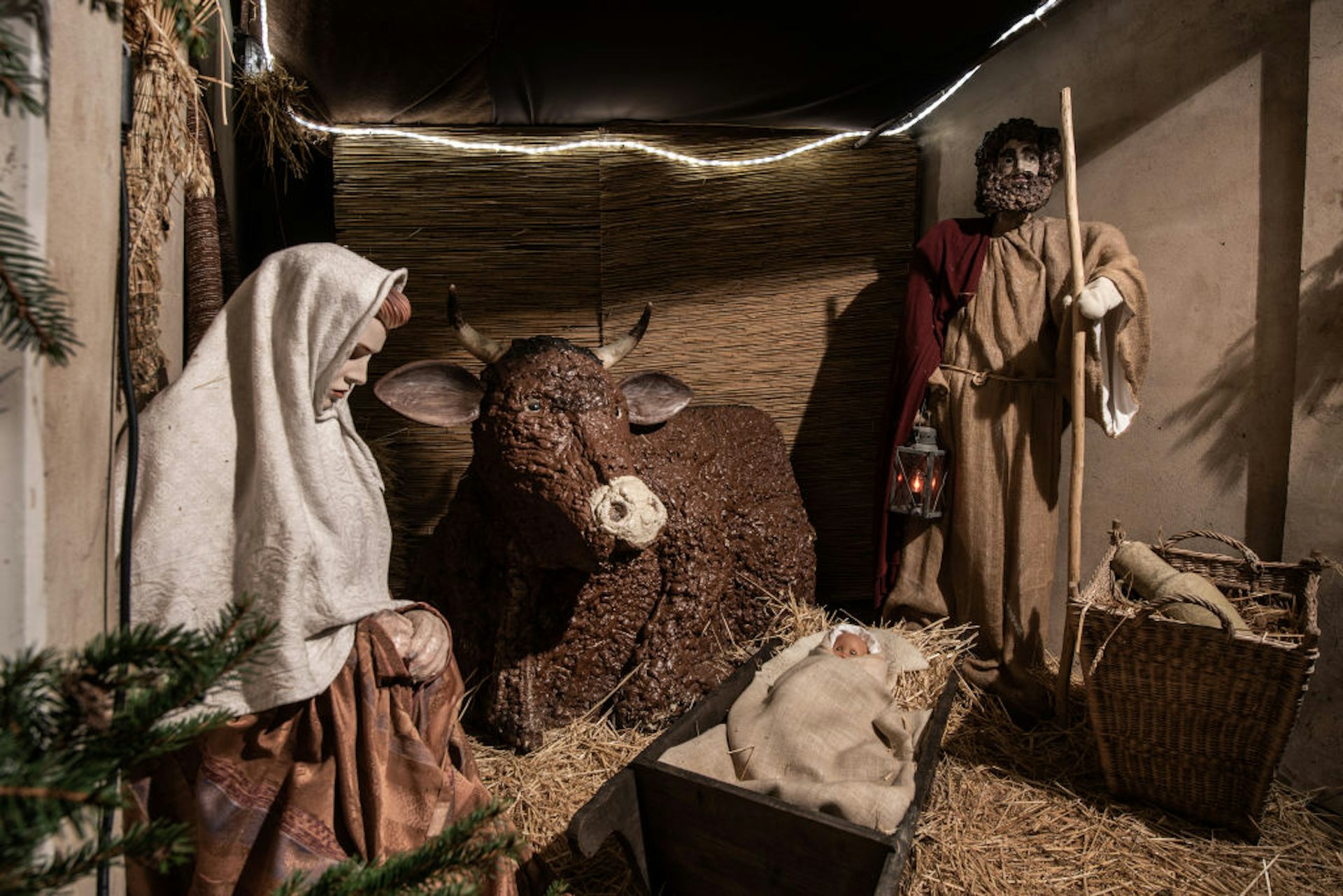
The lambs used in the temple sacrifices were taken from these flocks. The Bethlehem Migdal Eder was the base from which the temple flocks pastured on the Bethlehem hills. Did the shepherds go house to house, or stable to stable, looking for the baby in a manger, or did they go straight to the watchtower of the flock-the Migdal Eder? Here was a manger that all the shepherds were familiar with. The shepherds, as directed by the angel, went looking for the baby in a manger (Luke 2:8ff). There was something significant about the manger (Luke 2:12). Moreover, the angel explicitly stated that a baby wrapped in cloths and lying in a manger was a sign to the shepherds. When something is mentioned three times in the scriptures it is usually done to highlight its significance. The manger (feeding trough or stall) is mentioned three times by Luke in his account of Jesus’ birth (Luke 2:7, 12 & 16). It is highly unlikely Mary and Joseph and the baby Jesus were surrounded by cows and sheep, or other domesticated animals, as is typically illustrated on Christmas cards. If Mary did give birth to a baby in a place where animals were normally kept, it would have been clean and the animals housed elsewhere. Jewish people are generally fastidious about cleanliness and have numerous laws that cover hygiene. This is plausible considering that Mary used either an animal’s feeding trough or an animal stall as a place to lay her newborn son: the Greek word phatnē used in Luke 2, which has traditionally been translated as “manger,” has both meanings. Perhaps Jesus was born in this downstairs area of the house. Many ordinary houses in first-century Judea had a downstairs area to house livestock overnight.

What we learn from Luke 2:7, however, is that Mary and Joseph did not use the usual guest accommodation because, literally, “there was no place for them.” It is reasonable to assume that Joseph had family in Bethlehem and that he was expecting to stay in their guest quarters. Instead of inns, travellers were usually welcomed into private homes, whether large or small. In a culture that prided itself on hospitality, inns were rare in Israel.

The etymology of kataluma suggests a place where a traveller can relax and unwind, and the 2011 edition of the New International Version justly translates this word as “guest room”. Yet there is no innkeeper in the biblical accounts of Jesus’ birth and there probably was no inn.įor several years now there has been some discussion among Greek scholars about the Greek word kataluma (κατάλυμα), traditionally translated as “inn” in Luke 2:7.
#THE SPOT WHERE JESUS WAS BORN FULL#
Numerous nativity plays feature an innkeeper turning Mary and Joseph away from his door, but kindly offering them a space in a barn or stable full of farm animals instead. Of all the scripture verses about the birth of Jesus, possibly no verse has been elaborated on as much as Luke 2:7. She wrapped him in cloths and placed him in a manger, because there was no guest room available for them.

While they were there, the time came for the baby to be born, and she gave birth to her firstborn, a son. Please read the short Introduction first.


 0 kommentar(er)
0 kommentar(er)
